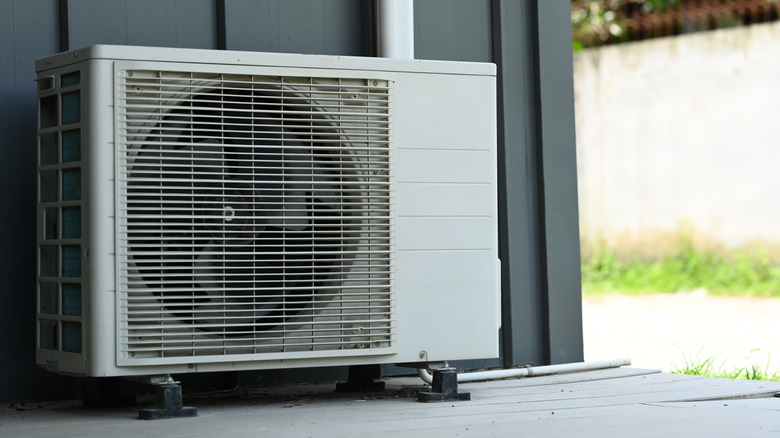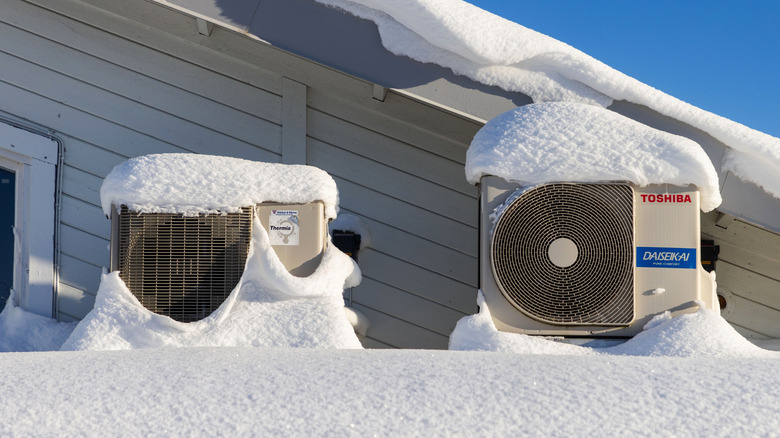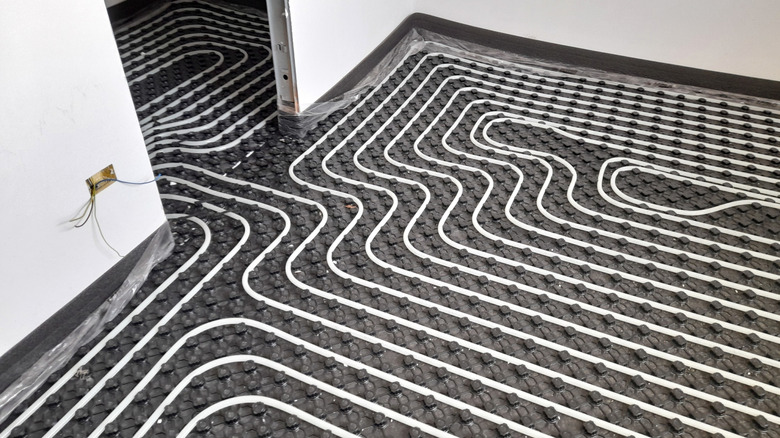The Downsides Of Heat Pumps: Are They Right For Your Home?
More than half of the energy you use and pay for in your home is for space heating and air conditioning, per the U.S. Energy Information Administration. Add in the fact that, according to a Federal Reserve System report, 85% of adults have reported an increase in utility bills, and you have a solid reason for wanting to switch to a heat pump. Heat pumps are cheaper over time thanks to reduced running costs, offer even heating temperatures, and give you the chance to heat and air-condition your home with the same setup. But while installing a heat pump seems like a great idea, you might want to pause and critically consider their key drawbacks before deciding that it's the right solution for your home. Pay particular attention to disadvantages like high installation costs, lower cold-weather efficiency, noise pollution, and a relatively short lifespan.
Let's get back to costs for a second. Ductwork included, an electric furnace would cost about $2,800 to $3,600 to install and a natural gas furnace would cost between $3,000 and $3,900. Heat pumps, on the other hand, have a much wider price range. The popular ductless mini-split kind can cost from $1,300 to $8,000, depending on the size of the home and the number of units needed. Ducted air-source pumps would cost between $4,500 to $8,000 to get running, and geothermal heat pumps — which offer one of the most eco-friendly ways to regulate home temperature — hang around the $6,000 to $20,000 spectrum. Even if they might cut your energy costs over time, compared to other options, heat pumps still cost a lot to buy upfront.
Why heat pumps may not be right for you
There's plenty of fascination with air source heat pumps' ability to work at a 400% efficiency. However, these efficiency levels are only possible when the weather conditions are mild. In heating mode, heat pumps work by moving heat from the outside indoors, so when temperatures drop in colder seasons, the pumps have little heat to take in, and their efficiency drops, too. Cold-climate heat pumps may still work at 100% efficiencies, but they typically cost more. Plus, when the temperatures get cold enough, ice may form on the outdoor unit. This would force the heat pump to enter defrost mode, stopping your heating to melt the ice with an electric resistance heater before it can operate again. This feature can be one of the many reasons that send your heating bill through the roof.
Noise pollution is another issue. Heat pumps are typically noisier than furnaces. Plus, they are designed to stay outside your home, making the noise a nuisance not just to you but to your neighbors, too. The issue gets worse in winter, when your heat pump's efficiency drops, and it has to stay on longer and work louder (getting to 65 decibels) to produce the normal indoor temperature. So, if you do have neighbors, you might want to consider quieter heating methods to avoid complaints.
The final kicker is that heat pumps have a somewhat shorter lifespan than furnaces. When maintained properly, a gas furnace can last between 15 and 30 years, while an electric one can operate for 20 to 30 years before succumbing to wear. On the other hand, air-source heat pumps have an average life expectancy of 10 to 15 years, while their geothermal counterparts typically last up to 25 years.
Heating alternatives to heat pumps
Luckily, there are tons of other options for heating your home that you can check out. From radiant heating to hybrid heaters, you just have to pick the best method for your unique situation. For instance, if your locale regularly hits frigid temperatures, a hybrid heater may be a great choice. It allows you to get the reduced operating cost of a heat pump in moderate weather while still letting you switch to the furnace when temperatures dip.
Radiant underfloor heating is an excellent option if you don't like the idea of heating registers or radiators in the house. With this method, the hot water tubes or wires stay under the floorboards for a tidier look. The heating is more even than the kind you'd get from a forced air system. Also, you don't need to worry about outdoor temperature fluctuations like you would with a heat pump — radiant floor heating is powered either by a boiler or an electrical heating element. Finally, if you suffer from allergies, there aren't any forced air ducts to circulate pollen and dust around the house.


